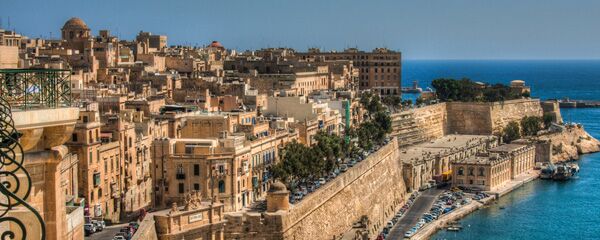The politics of economic citizenship programs can be ugly. But occasionally, I find something in the works that makes me smile.
The most recent occasion was a professional conference last month in Miami that focused on alternative residence and citizenship.
Among the featured speakers was the Prime Minister of Malta, Joseph Muscat.
He came to Miami to introduce his government’s newly enacted economic citizenship program, which gives foreigners the possibility to buy Maltese citizenship and passport for €650,000.
And on Friday, Nov. 22, I listened to the Hon. Mr. Muscat’s speech. In an inspiring address, he emphasized that the primary aim of the program was to bring to Malta the best and the brightest talent, from all over the world.
Malta, he said, really didn’t need the money.
That statement made me smile, given Malta’s fiscal position. The country’s debt-to-GDP ratio hovers around 80%, and annual budget deficits exceed 3% of GDP.
Those figures aren’t cause for immediate alarm. But, they’re high enough to justify serious proposals to raise additional revenues, or to cut spending. Malta really does need the money.
A surprising omission
Frankly, I had expected a different tone to Mr. Muscat’s speech. That’s because only two days before he delivered it, his government postponed the start-up of the new law. I had to smile when the speech was given as if nothing had happened.
Politics forced Mr. Muscat’s hand. The leader of Malta’s opposition Nationalist Party, Simon Busuttil, threatened to invalidate the citizenship of successful Individual Investor Program applicants once it returns to power. That threat forced the government to postpone the program.
How the revised program could look
Now that the program is on hold, Mr. Muscat has proposed starting a dialog with the opposition to find common ground. Several suggestions have been made to bridge the gap and move forward:
- Require a brief period of physical residence in Malta, or at least an interview.
- Require an investment in Malta that employs a minimum number of Maltese citizens.
- Require minimum payment of Maltese income tax for a limited period.
Goodbye to private naturalization
Mr. Muscat’s government already rolled back one controversial part of the law that exempted economic citizens from a requirement in the Citizenship Act to publish the names of naturalized citizens.
The opposition had claimed that keeping the names secret would allow organized crime kingpins and terrorists to carry Maltese passports.
I find that accusation highly unlikely, and needlessly inflammatory. In his speech, Mr. Muscat promised a thorough vetting of all applicants for economic citizenship. I believe him. No politician wants criminals and terrorists to carry passports issued by his or her government.
There are, of course, legitimate reasons why you might want to keep their acquisition of a second citizenship and passport a secret. Assume that you’re a successful Russian entrepreneur. You know that with a single phone call, Russian President Vladimir Putin can start a sequence of events that will result in the loss of your business—and possibly your freedom. It’s happened before—you need look only to the example of Mikhail Khodorkovsky.
Wouldn’t you want a second passport, just in case? And wouldn’t you want to keep it a secret from President Putin?
A great passport, if you can get one
Publishing the names of successful applicants will lessen the appeal of the program, especially in Russia and China. But Maltese citizenship and passport is a big enough prize that a revised program could still be viable.
A Maltese passport gives you visa-free access to nearly 170 countries. Since Malta is an EU member, its passport also gives you the right to live and work in any other EU member country. You can even take up residence in the non-EU nations of Switzerland, Norway, Iceland, and Liechtenstein.
I also suspect Mr. Busuttil’s Nationalist Party will back down on its threat to rescind naturalization once a revised program is passed. It’s on record as favoring a competing economic citizenship proposal. I suspect the main dispute revolves around who will control the incoming funds and how they’re spent.
Of course, there are no guarantees. Economic citizenship reversals, cancellations, and passport non-renewals have happened before, most recently in Grenada.
It could happen in Malta, too. And, in that event, the Maltese passport you paid dearly for would revert to the value of the paper it’s printed on—perhaps a few pennies.
Mark Nestmann
Nestmann.com













